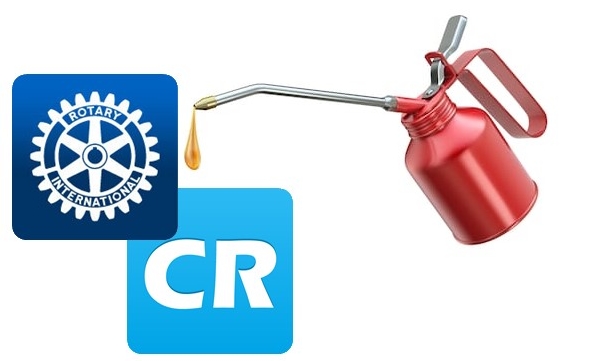 Club websites that function without fuss or drama and contribute to a smoothly functioning Rotary club are not the thing of dreams, they exist. At the beginning of a new Rotary year now is the time to seek this for your club if you wish.
Club websites that function without fuss or drama and contribute to a smoothly functioning Rotary club are not the thing of dreams, they exist. At the beginning of a new Rotary year now is the time to seek this for your club if you wish.The clubs with great websites did not achieve these overnight but Rotary is a "long game" so as long as the club gets going and keeps making consistent progress towards a great website then this is achievable. Also, even when they get their sites "up-to-speed", they are continually seeking to improve knowing that complacency is a death-knell for any club or function that believes they are “doing very well thank you”.
So, what is happening with these great sites?
The first point is that these websites have many functions (as stated below) that match responsibilities within the club and each one of those responsibilities included maintains their particular aspect of the club website. This means keeping the website functioning and up-to-date is shared across many people with no one person doing too much.
To keep it simple here is a list that breaks down the aspects (not necessarily in order) that can be addressed one at a time:
- There is a dedicated website/social media/PR person who is really available anytime to help any member wanting to use Clubrunner
- Every new member gets a basic instruction sheet on how to use Clubrunner for login and updating profiles
- Each year the club has a training session in a meeting to refresh member’s memories. This is usually done in July at the beginning of the new Rotary year where all members are also asked to review and update their member profiles
- Each year individual Board members or position holders get a one-on-one tutorial on how to use Clubrunner as needed (remember that once trained they usually do not need much or any additional instruction as they continue or even change roles).
- Occasional inserts into the club bulletin on how to use Clubrunner
The following functions may vary a little club to club here is an example:
- Secretary maintains club Director/Officer lists and adds/removes members (hopefully not too many removes!); some of this could also be done by the Membership Director
- Duties organiser updates the Meeting Responsibilities (Duties Roster) list
- Speakers organiser updates the Speakers list – note that this includes a promotional bio and picture (of speaker or topic) as this enables a proper promotion of the speaker to attract good meting attendance (including guests)
- Events are created by the Event (project) organiser
- President creates his/her own weekly Bulletin inclusion
- Stories are created by a variety of people, usually those involved in the projects and events – guidance as to format (and a “weather eye out”) is provided by the webmaster as where these are also included on the Homepage they need to meet a good presentation standard
- Bulletin Editor creates the bulletin – Because the above do their own parts of the website these are automatically created into the Bulletin without the Bulletin Editor needing to manage.
- Webmaster maintains the Homepage which, because of the above, is a small task. This includes making sure the Rotary and Theme logos are correct and club contact details are current
- Webmaster also does a six-monthly Homepage review that includes replacing carousels with new pictures etc.
- Webmasters have over time change every Menu tab away from the generic Clubrunner format and made personalise for the club – for almost all pages, once the page content has been redone it does not need more than a (possibly) bi-annual review. All generic Clubrunner pictures have long been replaced with club pictures or removed (widgets can always be reinstated later). Some care is made to minimise the use of perishable Content such as dates, or to group these onto specific pages that can be easily updated.
- All Directors and roles have access to the club communications facility for Rotary business (only). By using this instead of personal emails ensures security and maintains a record (a History) of club emails.
Creating a great website and maintaining it need not be onerous nor does it need a “IT Expert” … it is a skill easily learned and one that is useful in life and business but one that also brings out that innate creativity we all have and wish we had a way to express it.
So, how about it? The club website is your window to the world. Is yours glistening with a good display on view? Or is it hard to see through and the display unclear?
If you want some help, ask your District ICT Committee or District PR Committee … they are very willing to help.